Six Stages of Social Development
Disclosure: This blog contains affiliate links which I may earn a small commission from if you purchase through them, at no extra cost to you.
During our day to day activities, one topic that seems to be coming up with Mummies of toddlers lately is social development. Each of us are encouraging our children to play with one another child building a sand castle or staking blocks however are we being realistic with our expectations?
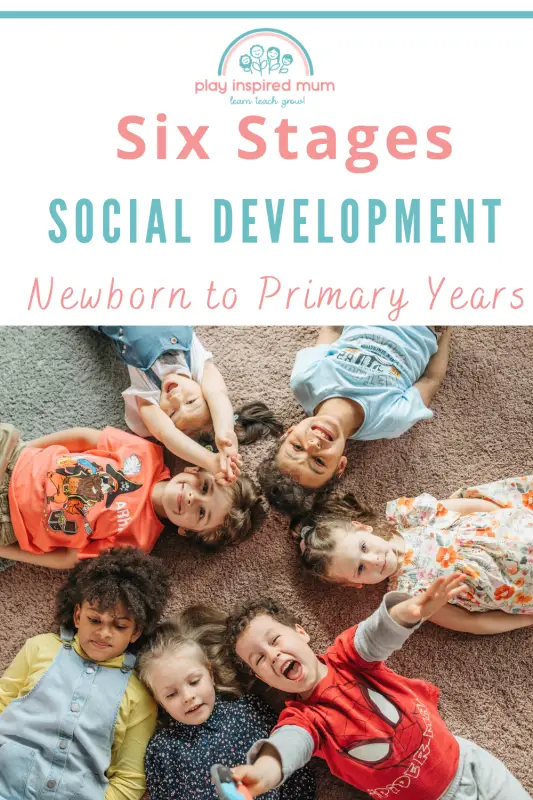
Six Stages of Social Development
I’ve always found the journey from babble to becoming a social butterfly fascinating.
Young people entering early adulthood today were once tiny beings learning their first words, dependent on close relationships for their emotional development.
This transformation didn’t happen overnight.
It was a gradual process that spanned years of age, involving different stages of development.
Each stage, from those first months of age through young adulthood, plays a crucial role in shaping personal identity and forming intimate relationships.
Since learning about the different stages, it has been such a magical experience witnessing the transitions from one stage to the next.
The theory of psychosocial development proposed by Erik Erikson gives us a framework to understand this growth.
It tells us that every stage, from early childhood through to late adulthood, involves navigating a psychosocial crisis that will have a significant influence on our social interactions.
Young children, for example, learn basic trust, while older adults reflect on their lives, seeking ego integrity.
Our social interactions, defined by our success at each developmental stage, lay the groundwork for strong relationships, fulfilling careers, and a happy life.
The Foundation of Social Development
Erik Erikson’s theory of psychosocial development has profoundly influenced our understanding of human development.
He proposed that throughout our lifespans, individuals pass through distinct stages, each characterized by a specific conflict that contributes to a person’s growth.
In early childhood, the first stage explores struggle between trust and mistrust defines the outlook on the world.
As we transition into the second stage, preschool years, it becomes about initiative versus guilt, shaping our ability to handle challenges.
Erikson’s stages continue into the third stage, young adulthood, emphasizing the search for personal identity versus role confusion.
This pivotal period determines the formation of intimate relationships and personal beliefs.
The stages of psychosocial development, from the first stage of basic trust in infancy through the trials of identity crisis in adolescence to the quest for ego identity in young adults, meticulously scaffold the framework within which social interactions and relationships are formed and refined.
They underscore the importance of developing a strong sense of self and establishing robust social connections, elements crucial for navigating the complexities of both early and later stages of life.
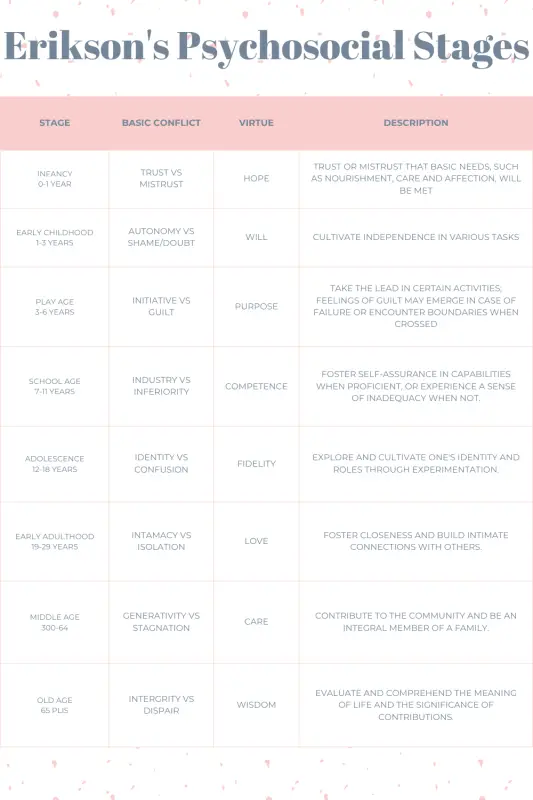
Understanding the Stages
Learning about Erikson’s theory of psychosocial development, I’ve realized how pivotal these milestones are in shaping our kids’ futures.
From the moment they first babble, moving through childhood into the complexities of young adulthood, every stage holds the key to unlocking a rich tapestry of social interactions.
Understanding these stages isn’t just academic; it lays the groundwork for raising well-rounded individuals capable of forming strong relationships.
By the time they reach young adulthood, facing Erikson’s stage of intimacy versus isolation, the skills honed in early childhood become fundamental.
These aren’t just steps; they’re building blocks for life, crucial for anyone tasked with guiding the next generation through the maze of human development.
In my journey, witnessing these transformations unfold has underscored the immense value of nurturing these skills, right from those first unoccupied play moments to later forming intricate friendships.
Six Stages of Social Development
Just like every other type of development, social play is refined through different stages.
A child cannot walk before he can stand, nor can he talk before he babbles. There are milestones that are reached along the way that encourage the child to be successful with their new found skills.
Unoccupied Play (Newborn – 2years )
In the early years of human development, infants engage in what I recognize as unoccupied play.
This stage, spanning from birth to 24 months of age, showcases the foundational elements of psychosocial development.
Infants might seem disconnected from their surroundings.
They often make movements without a precise goal.
Yet, these actions are not without significance.
They mark the infant’s first steps toward engaging with the world around them.
This phase is pivotal for the development of basic trust having basic needs met.
An infant’s needs are as simple as nourishment, safety and warmth.
When supported through positive reinforcement by their primary caregiver, these young children set off on a journey toward building a strong sense of self.
It lays the groundwork for navigating social relationships and mastering new skills.
Thus, unoccupied play is far more than meets the eye.
It is the silent orchestra of early childhood, tuning the instruments for life’s symphony of social interactions.
Encouraging Interaction
During this time, your child seemingly is not engaging in their environment or other children. They may make an occasional movement that has no obvious objective. They are more of an attempt to interact with their environment.
From the earliest months of age, fostering an environment that nurtures unoccupied play has been essential.
I realized the significance of establishing a space where my child could explore their environment, and bodily functions without direct engagement.
This setting played a crucial role in their early childhood development.
It encouraged not just cognitive development but also honed their sensory awareness.
Simple setups like a safe, clutter-free floor area with a variety of textures and soft toys stimulated their curiosity.
In my journey as a parent, I discovered the importance of allowing my child to have moments of solitude.
These moments, often overlooked, are foundational for building a sense of trust in their surroundings.
They learned about their environment through unguided exploration, which is a vital step towards developing a strong sense of self.
This process, although it appears passive, prepared them for more complex social interactions and emotional development in the stages that follow.

Solitary Play (2-3 years)
In early childhood, typically around 2 to 3 years of age, young children engage in what we identify as solitary play.
It marks a pivotal stage in child development, where imagination starts to bloom.
This stage involves any play without input from others. The child is usually unaware or not interested in the activities around them or presence of others.
While this style of play is mainly seen in younger children, it is an important skill to practise for older children. Solitary play allows the child to learn to entertain themselves.
Provide your child with a puzzles to improve her problem and cognitive skills. These will be useful for future stages of social play.
The child immerses themselves in a world of their own making, a universe where puzzles come alive to refine problem-solving skills and cognitive abilities.
This developmental stage, grounded in the theory of psychosocial development, serves as the foundation for more complex social relationships and personal identity in later life stages.
Observing a child in solitary play offers a window into their budding personality and cognitive development.
They are not merely playing. They are navigating the early stages of psychosocial development, learning the basic trust in their capabilities.
As they progress through successive developmental stages, the skills honed during solitary play lay the groundwork for forming intimate relationships and a strong sense of self.
Hence, the importance of solitary play transcends the early years, fostering a sense of security and accomplishment vital for the challenges of young adulthood and beyond.
Solo Activities for Growth
At 2 to 3 years of age, toddlers engage heavily in solitary play, laying foundational bricks for both cognitive and social development.
It is during this time that young minds start to understand their surroundings through focused interaction with toys and puzzles.
This is crucial for early childhood, aiding in the smooth transition to more complex stages of development.
- Puzzle Assembly: This enhances problem-solving and cognitive skills. Each piece’s fit contributes to a toddler’s understanding of shapes and spatial relationships.
- Artistic Expression: Providing crayons and paper encourages creativity, allowing children to express their feelings and ideas visually. This activity supports emotional development and fosters a strong sense of self.
- Building with Blocks: Stacking blocks not only improves motor skills but also teaches basic math concepts such as size and volume. It prepares children for the next stage by introducing concepts of trial and error.
These activities, vital for early childhood development, set the stage for more intricate social interactions and play in the months and years to come.
They are foundational for young children building their unique identities while navigating various roles within their environments.
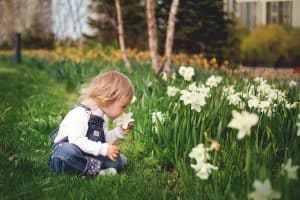
Character Play (2- 3 ½ years)
In the span of early childhood development, character play emerges as a pivotal stage.
At this juncture, young ones, generally aged between two and three and a half years, delve into the realms of role-playing and keen observation.
This period marks a significant leap in their social interactions and emotional development.
They watch adults and peers alike, imitating complex roles and actions they witness.
During these formative months, a child might observe a parent preparing meals and later mimic these actions with play food in their toy kitchen.
This imitation plays an instrumental role in their cognitive development, laying a foundation for future stages of social and personal identity exploration.
Character play not only nourishes their imagination but also enhances their capacity to understand and assume different roles, a skill crucial for navigating the diverse social landscapes they will encounter as they move towards young adulthood.
As educators and caretakers, recognizing and fostering this stage through positive reinforcement becomes imperative for nurturing a child’s burgeoning sense of self and their ability to form complex social relationships in the years to come.
During character play, your child will observe others and then start to incorporate what they have seen into their own play. A child may watch another decorate their sandcastle with leaves and then do the same to their own sandcastle.
Allow your child to explore character play with a play food in their toy kitchen. They can practise doing what they have witnessed you do over and over again – preparing meals!
Fostering Imagination
Character play, emerging in youngsters around 2 to 3 and a half years of age, heralds an era where they start mimicking roles they observe.
This phase is a cornerstone for building a child’s imagination and understanding of societal roles.
As a guardian or educator, you have a pivotal role in facilitating an environment that nurtures this form of play.
Here are a few strategies to enrich their experience:
- Curate a diverse play setting: Introduce a variety of costumes and props that represent different characters and professions. This diversity sparks their curiosity and invites them to explore various roles.
- Incorporate storytelling: Share stories that feature a range of characters. Following each narrative, encourage them to reenact scenes. This not only enhances their comprehension of the plot but also allows them to experiment with different personas.
- Lead by example: Occasionally, join in their imaginative play. Assume roles yourself to demonstrate how to interact within these imagined scenarios. This will not only entertain them but also teach them nuanced ways of engagement and expression.
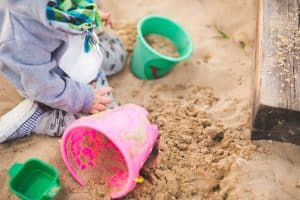
Parallel Play (2- 3 1/2 years)
At the tender ages of two to three and a half years, young children engage in what I have observed to be called parallel play.
This stage marks an intriguing phase in the panorama of social development, a time when toddlers play adjacent to, but not directly with, one another.
They may sit side by side, each absorbed in their individual activities, yet their actions could mirror each other. For instance, while one child builds a tower with blocks, another might do the same using similar blocks.
The significance of parallel play lies not in the interaction, which on the surface appears minimal, but in the subtle social awareness it cultivates among young children.
During this phase, toddlers begin to recognize the presence of their peers, eventually leading towards more interactive stages of play.
It provides a foundation for future social interactions, acting as a bridge between solitary play and the more collaborative associative play that follows.
For parents and educators, understanding this stage becomes crucial for fostering environments that nurture these early, vital connections.
Parallel Play involves children playing side by side with similar materials but each is playing separately.
They may mimic one another and converse however complete their tasks independently.
Imagine a group of toddlers playing with play dough around a table. Each is creating their own sculpture however if one child were to leave the table, the others would still continue to play.
Encouraging Social Awareness
I’ve observed that parallel play serves as a crucial milestone in the journey towards mature social interactions.
At this phase, toddlers engage side by side, each absorbed in their own world. However, they start becoming aware of their peers’ presence.
This stage lays the groundwork for more complex forms of play and interaction. It spotlights the importance of nurturing social awareness from an early age.
To enhance this development, creating a shared space filled with identical sets of toys can be effective.
This setup not only encourages personal exploration but subtly fosters an awareness of others.
It’s fascinating to watch as children, previously engrossed in solitary activities, begin to glance sideways, mimicking actions or even offering a toy without being prompted.
Such gestures mark the budding of social awareness. This is a skill that will flourish into the ability to form deep personal relationships. That and navigate the nuances of human development in the years to come.
Additionally, facilitating group activities where each child has a role can mirror the collaborative efforts seen in older age groups.
These scenarios guide them through the understanding that collective activities can yield rewarding outcomes. This is achieved by embedding the seeds of teamwork and cooperation vital for their next stages of psychosocial development.
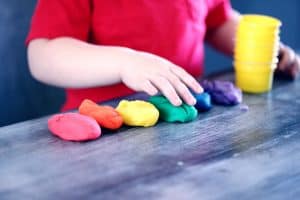
Associative Play (3-4years)
In the associative play stage, usually observed in children aged three to four years, a significant shift occurs.
They have moved past merely playing alongside each other, as seen in parallel play.
Now, these young children begin to interact with each other more directly.
When children participate in loosely organised play with others, we refer to this as Associative Play.
There are no real rules or structure and if one of the children left the activity, the others would continue. Children begin to be more involved in what others are doing around them.
Their play lacks structured rules or organization, yet this is where the seeds of social interaction start to sprout.
This is an important stage as it assists the children develop problem solving skills, cooperation and encourages language development.
It marks a pivotal period in their social development, one where sharing and negotiation skills begin to develop.
This stage is crucial for the establishment of a strong sense of identity and solid social relationships in the years to come.
Here, the child starts to understand the importance of cooperative skills, essential for navigating the complex web of human relationships.
By taking turns, sharing toys, or deciding on the theme of their play, children learn vital lessons about communication and compromise.
These interactions lay the groundwork for them to build strong relationships and develop a sense of trust and security, qualities that will serve them well into young adulthood and later life.
Cultivating Cooperation
Associative play marks a pivotal stage in a child’s social development.
At this phase, kids begin to engage with each other more directly, laying the groundwork for future interactions.
This era is ripe with opportunities to cultivate their cooperative skills. This is a fundamental aspect of their growth into socially adept young adults.
In facilitating this critical growth, I have found that certain activities stand out for their effectiveness.
- Art projects: Organizing projects where children create a collective mural or collage teaches them the value of collaboration while allowing for individual expression.
- Group storytelling: A circle where each child contributes a part of a story fosters an appreciation for shared creativity and listening skills.
- Sporting activities: Simple team sports or relay races can highlight the joy found in working together towards a common goal.
Through these endeavors, they learn to communicate and compromise. Also, they experience the euphoria of achieving as part of a team.
Group participation gives a child a sense of purpose within their important role.
The magic of associative play lies in its ability to transform mere interactions into deep connections.
It teaches children to navigate the complexities of social relationships, preparing them for a lifetime of meaningful bonds.
As they progress through this stage, they become equipped with the cooperative skills necessary for successful engagements in both early childhood and beyond into young adulthood.

Cooperative Play (4-6 years)
I have discovered that Cooperative Play, which mostly spans ages 4 through 6, plays a crucial role in childhood development.
It marks the stage where children start to deeply engage in play that requires teamwork and understanding of social roles.
They won’t just play alongside each other. They actually play with one another, taking on different roles within their imagined scenarios.
Examples of Cooperative Play
The play is usually organised with clear roles assigned. When playing a game of ‘Shops’, one child would adopt the role of a store keeper and another a customer.
Activities like organizing a game of ‘house’ or a makeshift classroom become a common sight.
Here, one child might adopt the role of a parent, another a teacher, forging paths for intricate social interactions and dialogues.
This stage serves as a fundamental building block for young people. That is, by instilling a strong sense of self and aiding in the establishment of strong relationships.
By participating in cooperative play, children learn the vital lesson of give and take.
They discover the importance of listening to others, sharing ideas, and the joy of achieving a common goal together.
Cooperative play gives children an opportunity to develop critical thinking.
They learn when to be flexible with their ideas and when they need to stay firm in the beliefs.
They will be exposed to situations where they can develop resilience to turn negative experiences into positive outcomes by developing a growth mindset.
This may need scaffolding.
This not only prepares them for the next generation of societal roles but also cultivates a sense of security and accomplishment within them.
It’s evident that fostering such interactions during the crucial years of early childhood lays the groundwork for successful personal and intimate relationships in young adulthood and beyond.
Cooperative Play involves children to be interested in both the activity and the people they are playing with as the games success depends on the participation of others.
The aim of the game would be to replicate a shopping experience. If one of the children were to abandon the game, the play episode would not be able to continue.
Team-Building Activities
Cooperative play represents a critical juncture in the development of social skills, showcasing the importance of teamwork and shared objectives.
It is in this stage that young individuals learn to navigate the complexities of collaboration, an essential skill for life beyond childhood.
Various activities can be designed to promote cooperative play, each fostering an environment where young people come together for a common goal.
- Group Art Projects: Engaging children in projects that require contribution from everyone can inspire a sense of unity. Each child offers a part of the artwork, learning that collective effort leads to outstanding results.
- Team Sports: Sports like soccer or basketball naturally encourage teamwork. They require passing the ball, defending, and cheering on teammates, highlighting the reward of working together.
- Scavenger Hunts: Organizing a scavenger hunt requires children to work in teams to find clues. This activity demands communication, problem-solving, and sharing of responsibilities.
- Building Challenges: Tasks that involve constructing something from blocks or other materials can promote cooperative play. Children learn to discuss ideas and negotiate roles, enhancing their communication and collaborative skills.
These activities not only provide a platform for fun but also serve as crucial building blocks for developing strong sense of identity, security, and personal control among young adults.
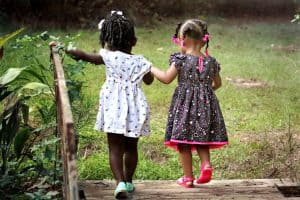
Learning Social Development Through Play
Through play, our children learn
- negotiation
- problem solving
- turn taking
- sharing
- conflict resolution skills
- empathy
These are social skills that we use every day to connect and communicate with each other.
Whether it be verbal or non verbal communication through speech, body language or gestures, a child with strong social skills will have a knowledge of behaviour that is appropriate to present in different social situations.
They will be able to recognise others feelings and act appropriately but not without going the different stages of Social Play.
When your two year old is hanging back watching from the sidelines or your three year old is acting out situations they experienced at the park with their toys at home, please be assured that they are learning so much about social conduct.
This will allow them to progress through these stages and develop vital social skills that they will carry with them well into adulthood.
Beyond the Playground
The journey from babble to social butterfly navigates through crucial stages of play that lay the foundation for complex social interactions.
By the time children reach young adulthood, the skills honed on playgrounds and classrooms take on new dimensions.
They face the challenge of navigating intimate relationships, understanding their personal identity, and determining their career paths.
These early experiences with cooperative play and teamwork become essential as young adults forge strong relationships and seek a purpose that resonates through their lives.
In the hustle of early childhood development, one might overlook the significance of these playful activities.
Yet, they are instrumental in preventing role confusion and fostering a strong sense of self.
As they step into the next stage of life, these young people carry with them a sense of security, instilled during months of age, which allows them to explore different roles and embrace various career paths with confidence.
The leap from solitary play to fostering close relationships in adulthood illustrates a seamless transition influenced by early social play.
Therefore, understanding the stages of psychosocial development is not just an academic exercise but a vital tool for parents, educators, and social workers.
It guides us in supporting young individuals as they navigate the complex web of social relationships, helping them to build a life marked by a strong sense of identity, achievement, and ultimately, a fulfilling sense of accomplishment.
Practical Tips for Parents and Educators
I have observed that positive reinforcement plays an essential role in fostering social development in young children.
We, as educators and parents, can shape their journey through the stages of social development by celebrating small victories.
Offering praise for sharing or taking turns can instill a strong sense of self and security in young ones.
Patience, too, cannot be overstated.
Recognize that progressing through Erik Erikson’s stages of psychosocial development takes time.
A child grappling with role confusion in their teenage years requires our understanding and guidance to form a robust personal identity.
As they navigate the complexities of forming intimate relationships in young adulthood, our unwavering support becomes their cornerstone.
Environments that encourage exploration and mimic real-life settings can have a profound impact.
Incorporating role-play into the routines of preschool years, we can guide them through the lens of developmental psychology.
Practical tips might include setting up a mini grocery store to encourage cooperative play or arranging story times that promote character play.
This approach not only supports their current stage of development but also positively influences their trajectory into young adulthood and beyond.
The Value of Social Skills in Lifetime Development
The journey from early childhood through to young adulthood is paved with developmental milestones that shape us into the social beings we become.
Erik Erikson’s theory of psychosocial development illustrates this path, emphasizing how each stage builds upon the last.
In the preschool years, a foundation of basic trust versus a sense of mistrust sets the stage for future interpersonal interactions.
Once a child enters the school years, they encounter various roles and relationships that further mold their personal identity and social skills.
As children transition to older adolescents and young adults, the stakes of social development rise.
They face the challenge of role confusion versus identity formation, a pivotal stage according to Erikson, where the acquisition of strong relationships plays a crucial role.
Here, the ability to forge intimate relationships and a strong sense of self is critical.
Young adulthood presents the need for companionship and love, leading individuals to seek out close relationships that often last into middle adulthood and beyond.
Thus, guiding young people through the psychosocial stages with positive reinforcement and keen awareness of their developmental needs will not only help them navigate the challenges of each stage but also equip them with the resilience and skills necessary for a fulfilling life.
Learn more about teaching your child to share here!
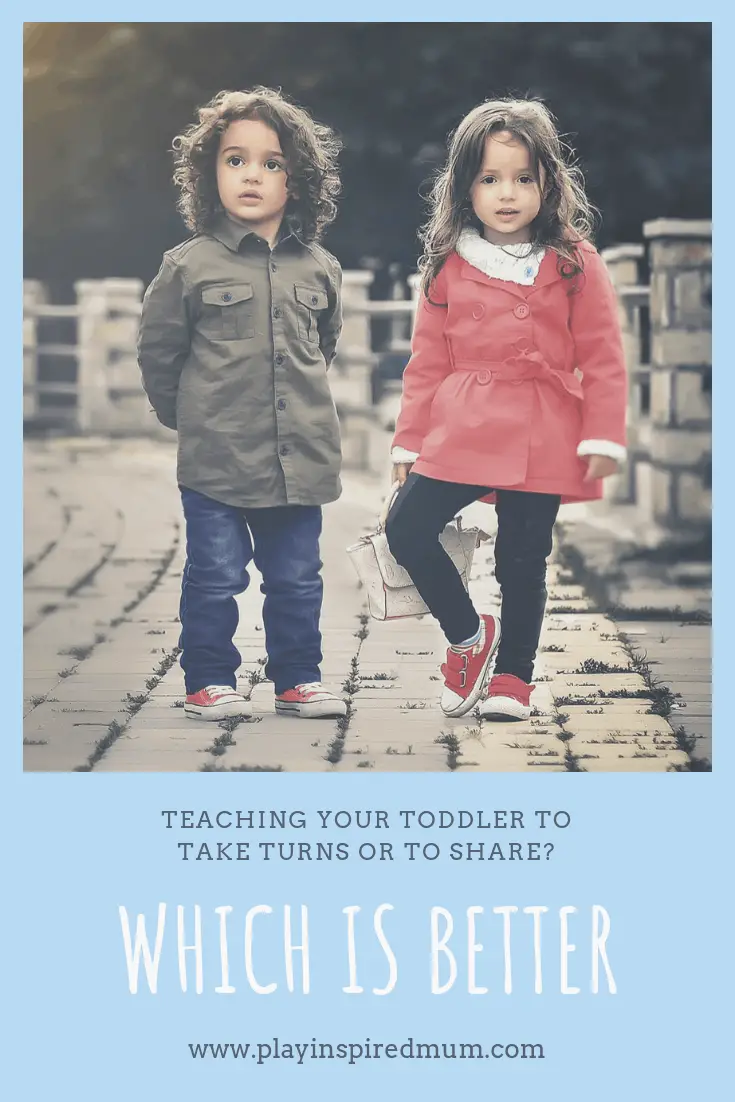
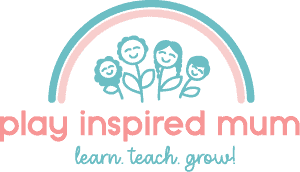
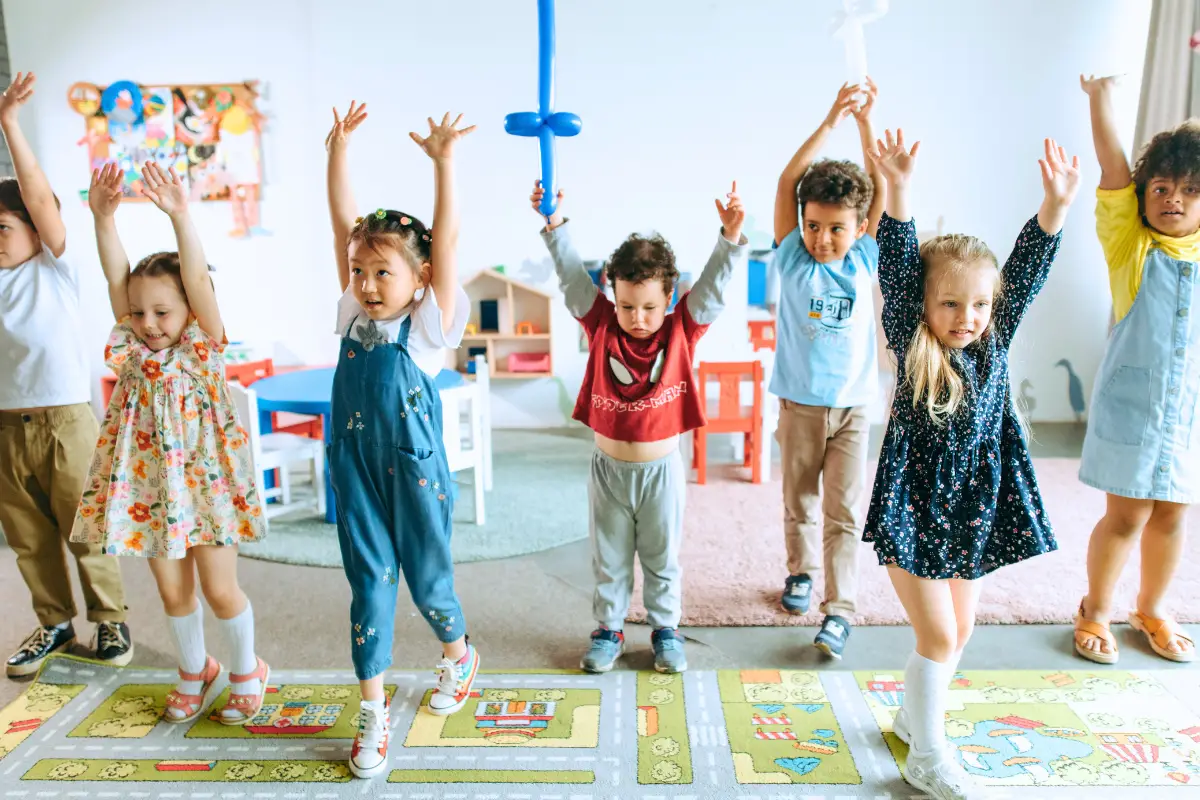
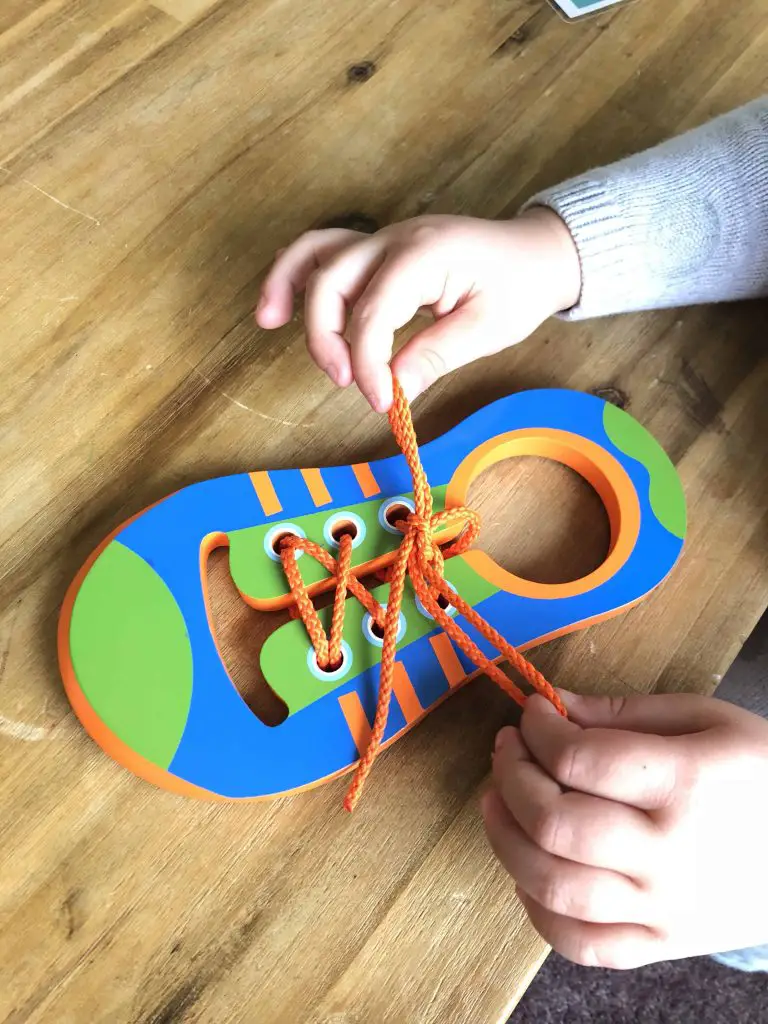
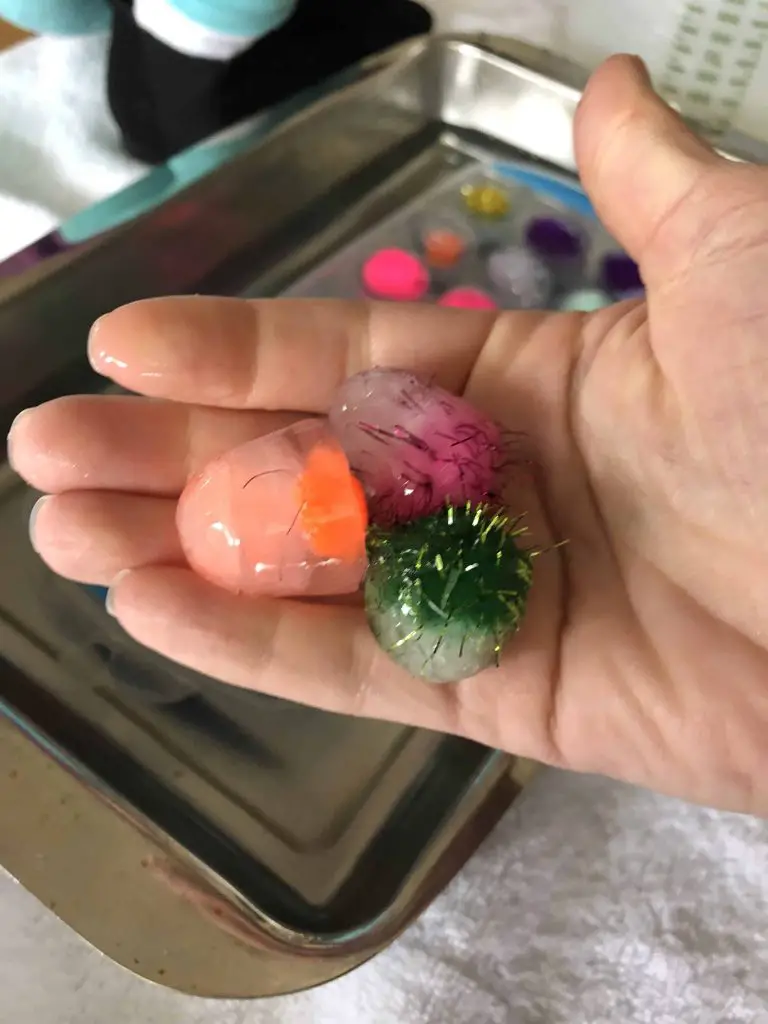
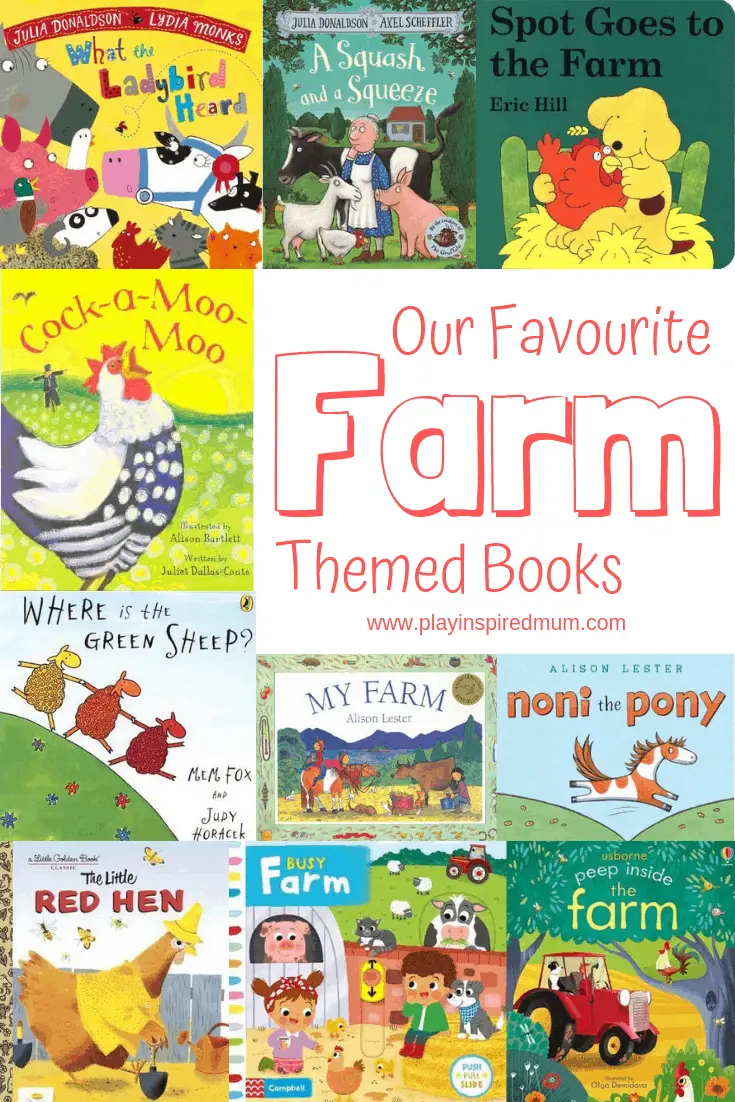

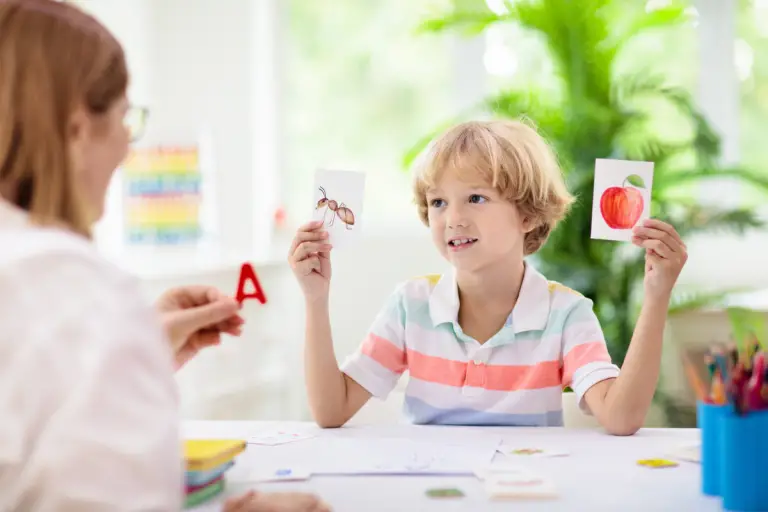

Thanks for sharing this, so much useful information that helps me understand my little girl a bit better.
You are most welcome! So glad this information has been over value to you x